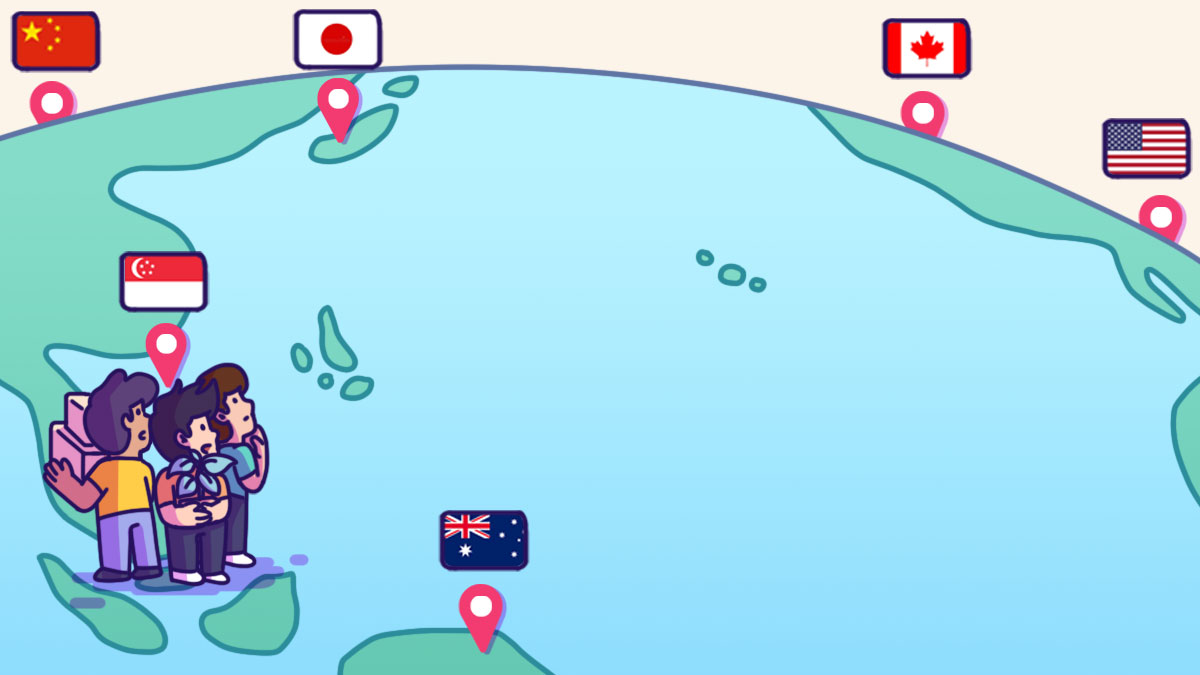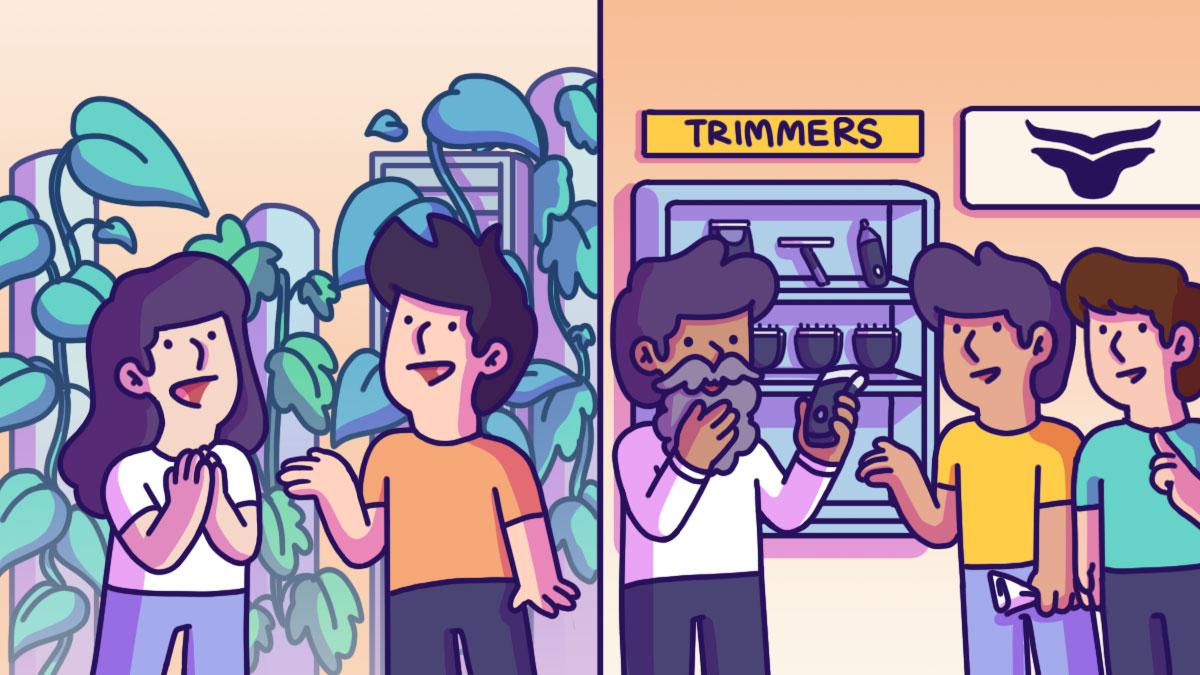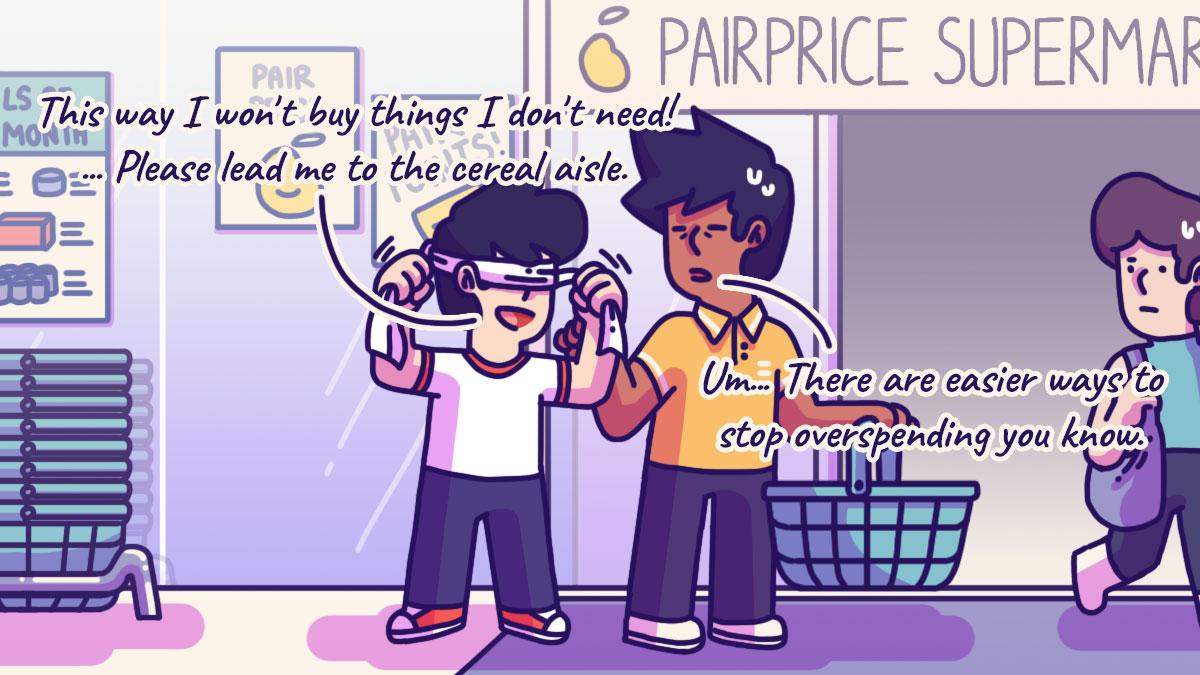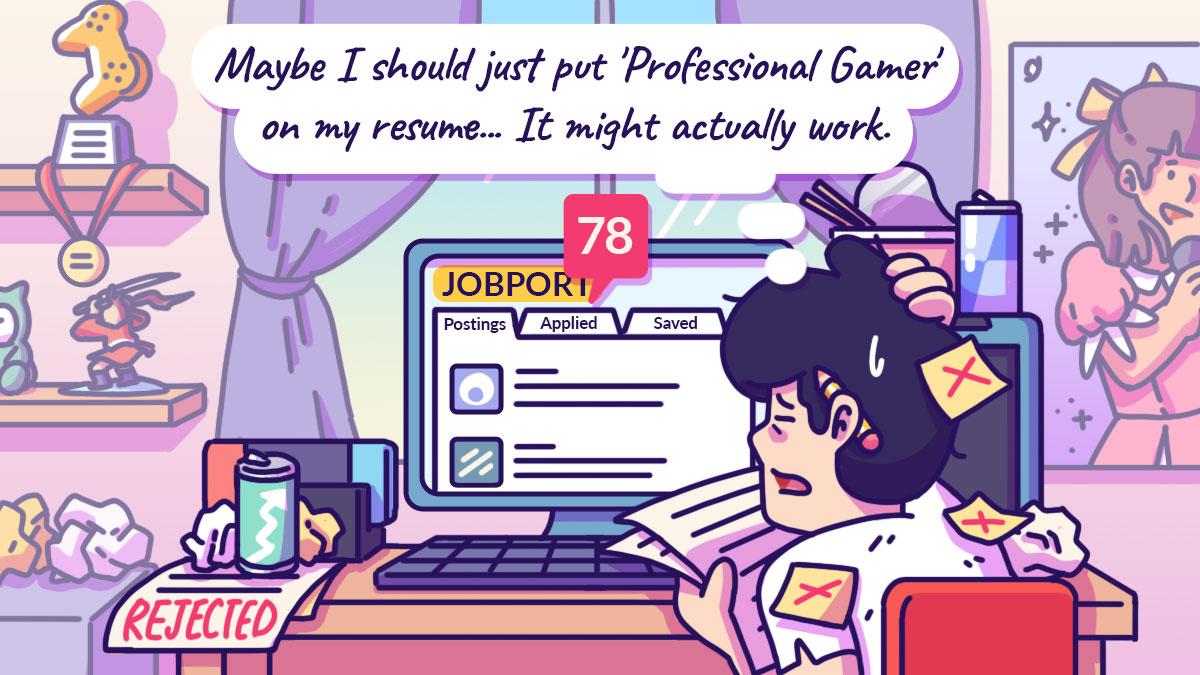From the ashes came a business idea
It helped that Tan already had prior experience in setting up a business. He previously started TinyMOS, selling a pocket-sized starshooting camera, and it was an idea that came about as a result of a physics module he was taking back in National University of Singapore. Back then, he decided to embark on this business idea with a co-founder at the end of his third year. He took a gap year to focus on the business but he didn’t return back to school because his business took off in its own right after a hugely successful crowdfunding campaign and help from angel investors. According to Tan, this meant that he graduated with a degree but without honours. Though Tan admitted that people in Singapore “value certifications a lot”, both his family and the school were supportive of his entrepreneurial pursuit. He added: “I was very lucky in that I'm the youngest child in the family of four kids. So in a sense, I have a stable family structure and if I fail, I'm not going to end up in the streets or something like that.” Unfortunately, scalability issues, a highly competitive space (with the likes of Canon, Sony and Nikon), supply chain issues, and eventually, the Covid-19 pandemic led to the demise of the company years later. However, in April 2021, Grow Thiccly started operations, a business which he built with a capital of a few thousand dollars. Though there are many generic plant care products on the market, they aren’t specifically catered for aroids. That’s where Tan’s grow poles come in.He came up with a design that simulates the natural climbing surface environment for aroids, resulting in the growth of larger leaves, and also created fertilisers enhanced by scientific research. Additionally, the poles promote aerial root growth, and maintains optimum humidity levels for climbing plants such as monsteras, philodendrons and anthuriums, which can be very picky. Plants can then grow more mature leaves and have less root growth issues.View this post on Instagram
View this post on Instagram
A costly mistake: “Sales fell to almost zero per month”
While the start-up cost seemed low and “was something that I could muster”, it didn’t mean that Tan’s financial situation was completely stable, though. He admitted that his savings came solely from his salary at his previous start-up - which was not high - and was deteriorating daily. He had also not done any investments to grow his money and the pandemic had put a stop to his photography side hustle. However, his business (with the aid of a successful Kickstarter campaign) took off and was profitable from the very first batch of products that they sold. But, copycat products by overseas sellers emerged a few months into Grow Thiccly’s launch due to the intuitive design of the pole. One of whom, according to Tan, plagiarised GrowThiccly’s images and videos and claimed to have invented the product after months of research. “When it first happened, I was quite upset because the thing is that with Covid, this (Grow Thiccly) became my only source of income. I definitely took a hit on the bottom line… After the first month of the appearance of the copycats, our sales fell to almost zero per month,” Tan said, adding that the company recovered when people “realised that our product quality is better and we stand for better things in their environment”. This was an expensive mistake many entrepreneurs make – not filing for Trademarks in the overseas countries they operate, which can protect brand logos, images and designs from violations. While Tan has filed patents in US and Singapore to safeguard his business against copycats, Tan said it’s going to take time for that to be processed. Amazon Brand Registry and protection tools can help brand owners like Thiccly proactively stop infringing listings or inaccurate content. Grow Thiccly prides itself on its eco-friendly design, with its website stating that there is “no waste from trimming of plastic mesh or zip ties” as “all cutouts are recycled at the factory”. Of course, this is due to Tan’s strong desire to do good by the environment and he is always reviewing the manufacturing process to walk the talk. He recounted an incident during the first production run of the product where they had ordered 1,000 pieces and realised that there were a lot of small plastic cutouts left over. “On top of that, there is a small plastic film that covered the whole product to prevent it from getting scratches. So I basically had to sit in the office and sift through every single 1,000 of those pieces, removing every single piece of the plastic sheet and make sure that when we send out the products, it reaches our environmental standards.” The manufacturing process was subsequently improved upon and Tan said they paid the manufacturer extra to ensure it was done properly and it’s a cost that he absorbed. Tan relied mainly on word-of-mouth to generate interest in the brand and used Instagram as their main platform. “We post a lot about our design processes, why our design works, why our design is strong, what kind of ecological angle we are coming from when we make small tweaks, and it resonated with a lot of people.” When Tan does reach out to influencers with an offer to try out the products, he only asks that they give a review, regardless of whether it’s positive or negative. “We have not spent a single dollar on any reviewers to review our product. The only thing they get is free samples or our new product for them to review.” Now, the company makes a six-figure revenue annually.It was the right time to start a business
As for Ong, the reaction from friends and family was generally positive despite the controversial business idea. Some of his friends, though, had “cheeky comments”. “I think all in all, people were generally quite okay with us doing it during school because it was the Covid period and there was really not much responsibilities back then.” Ong also felt that it was the right time to pursue entrepreneurship as he only “had school grades to focus on” and there was “less pressure back then”. In order to validate their business idea, Ong and Teo conducted surveys and focus groups with a “decent size of people”. “We found that actually, more than 60% of men in Singapore do groom below the waist, just that they don't use the correct grooming methods and grooming tools,” Tan said, adding that the main problems identified were men suffering cuts while using scissors and facial razors for below-the-waist trimming and the lengthy duration required. The cost required to start the business was a five-figure sum and Ong’s contribution was a significant portion of his savings which he had amassed via a combination of his NSF allowance and other investments he made. It was a “money-saving period” for Ong who revealed that he “went back home for dinner quite a lot” and didn’t club nor go out drinking owing to the fact that it was during the pandemic. After getting the capital required, the real challenge came next - actually starting up their business.Costly shipping
Ong and Teo had no experience running a business and had to rely on Google or watching YouTube videos. “A lot of all these come from experience and the more you do it, the more familiar you will be. At that point in time, everything was very, very new to us. We struggled with figuring things out,” said Ong. Their biggest faux pas? Not realising how costly shipping would be; and it’s not just because of the pandemic. Their initial design for their product’s box saw it open like a book and while it created a very nice unboxing experience, it wasn’t very practical. “Then after a while, we realised that, actually, that's very impractical. Just because it looks nice doesn't mean we should go with the idea because shipping costs increased by two times,” Ong recounted. It also didn’t help that the ambitious duo had decided to start with free worldwide shipping and quickly realised that the hefty overseas shipping cost was eating into their profits. For example, Ong shared, shipping one unit of product to Switzerland cost somewhere between S$20 and S$35 and it was retailing for S$70. Though it seemed counterintuitive to start a business with worldwide shipping during Covid-19, Ong explained that they knew Singapore was too small a market and they wanted to target bigger markets like US, Australia and the UAE. Eventually, they had to adjust their business strategy and while previously they were shipping everywhere, they now only ship to 30 countries internationally on their website, while leaving US fulfillment to Amazon. Like Tan, Ong relied on word of mouth to garner traction for their product and despite our conservative society, guys in Singapore were surprisingly intrigued by the novelty of the product and it wasn’t hard to get customers locally. Another method that Ong used to get attention was ‘hijacking’ influencers. When Ryan Tan, co-founder of Night Owl Cinematics, was in the spotlight for the public feud with ex-wife Sylvia Chan, Ong reached out to him and eventually got him to post about Bovem. “I think we got a lot of initial traction from that and then we started working with him as a brand partner… And then we also moved on to organic channels like TikTok and Instagram where we kind of like blew up during the Covid period.” Their efforts clearly paid off as the company broke even in three months and “made six figures” in four months. Their TikTok account has also amassed more than 100k followers and close to 8 million ‘likes’.Expansion overseas
 At the start, while Bovem products were already available for ordering on their website for US customers, they didn’t have a warehouse there and everything was being shipped out from Singapore. This meant that they had to pack and ship orders manually, delivery timing to customers was long and the cost to the customer was high.
However, they have since launched on Amazon.com and started using Fulfillment by Amazon (FBA) in the US by shipping their goods to the Amazon Fulfillment Centre in the US for Amazon to handle picking, packing, shipping and returns to all 50 states within two days.
Ong explained that when expanding, they tried to “understand the different buying behaviours of customers in different regions”.
“What we found was that, like, the rise of marketplace selling was very, very prominent to customers. For example, if you look at Singapore, people generally don't buy from brand websites much anymore…
“Every country has their own main e-commerce marketplace . So, what we do is we try to understand firstly, the buying behaviour of consumers in the country, and if the majority of them are buying from a certain marketplace we try to be on it as well.”
Like Ong, Tan registered to sell with Amazon Global Selling which helped him enter new countries, such as the US and Australia, while also handling the increased volume of orders.
Said Tan: “The thing is when we were selling in Singapore, I was basically taking orders on Squarespace and I was packing by myself every night. Then the volume got to a point where I was packing up a lot of stuff.
“So basically, Amazon Global Selling allowed me to make this scalable solution”. He went on to explain that Fulfilment by Amazon fulfils the orders for him and ensures last mile delivery in countries like the US and Australia.
“That means that I don't have to hire anybody to do logistics, especially when you're expanding overseas,” he added separately.
Echoing similar sentiments, Ong said e-commerce marketplaces are very helpful as they handle a lot of the logistics such as returns, customer management, customer queries and shipping.
Also, when promotional periods come about, these e-commerce stores will run their own campaigns which will help brands reach out to a wider mass.
Breaking into overseas countries comes with its own set of rules and fortunately, both Ong and Tan have not faced any legal or compliance issues during the process.
However, Ong said that the US is highly competitive even though it’s easier to sell to the people there.
“Just looking at Amazon.com alone, there are like almost 50 different trimmers in the market. Our challenge is how we can differentiate ourselves, be it like branding, techniques, features and all that to stand out from these competitors,” he said.
To stand out, as part of their CSR effort, Bovem conceptualised a campaign that had them plant a tree every time you “shave your forest”.
Despite their respective challenges, though, both Tan and Ong are still pushing through with their business.
Although, both have admitted that the thought of throwing in the towel has crossed their minds before.
Ong confessed: “Once in a while, we'll think about [it]... Norman and I graduated last year, then we have our friends working at big tech companies and they’re making a significant amount of money, then here we are shaving people’s balls…
“This thought will pop up in my head - how different would my life be if I actually got a job and get a monthly salary. There will be pros and cons for that. [But] I sat down and thought maybe I just have a different character, I prefer taking risks, and this entrepreneurship thing is something I should be trying.”
And if you’re thinking about starting a business for the wrong reasons, then it’s better not to, added Tan.
“If you want to do a startup in Singapore, make sure that that is something that you really want to do because tough times are coming, whether you like it or not. If you're doing it for the wrong reasons, you want to do it to get rich quick, you're not going to be in the course for long enough, then you're going to go into a corporate job anyway, and then you'll be a few years behind your peers.”
So does he ever see himself in a corporate job?
He quipped: “Let's just say that I applied for a job during the Covid period, and I felt allergic to the idea.” Content sponsored by Amazon Global Selling
Amazon Global Selling supports Singaporean brands like Bovem and GrowThiccly, and entrepreneurs looking to expand their business by selling products internationally online in the US on Amazon.com.
With Amazon Global Selling, local entrepreneurs no longer have to worry about the complexities of international distribution, operational burdens, or the cost of brick-and-mortar businesses.
As an Amazon.com selling partner, you get a wealth of product research tools, analytics tools, and brand building features designed to help you scale your business and build your brand, including Fulfillment by Amazon, and a ready base of millions of customers in the US.
Aspiring sellers can access free learning resources on Seller University and events. To learn more about how Amazon Global Selling can help your business grow and thrive, visit the Amazon Global Selling page or join the Amazon Global Selling new seller community Facebook group.
At the start, while Bovem products were already available for ordering on their website for US customers, they didn’t have a warehouse there and everything was being shipped out from Singapore. This meant that they had to pack and ship orders manually, delivery timing to customers was long and the cost to the customer was high.
However, they have since launched on Amazon.com and started using Fulfillment by Amazon (FBA) in the US by shipping their goods to the Amazon Fulfillment Centre in the US for Amazon to handle picking, packing, shipping and returns to all 50 states within two days.
Ong explained that when expanding, they tried to “understand the different buying behaviours of customers in different regions”.
“What we found was that, like, the rise of marketplace selling was very, very prominent to customers. For example, if you look at Singapore, people generally don't buy from brand websites much anymore…
“Every country has their own main e-commerce marketplace . So, what we do is we try to understand firstly, the buying behaviour of consumers in the country, and if the majority of them are buying from a certain marketplace we try to be on it as well.”
Like Ong, Tan registered to sell with Amazon Global Selling which helped him enter new countries, such as the US and Australia, while also handling the increased volume of orders.
Said Tan: “The thing is when we were selling in Singapore, I was basically taking orders on Squarespace and I was packing by myself every night. Then the volume got to a point where I was packing up a lot of stuff.
“So basically, Amazon Global Selling allowed me to make this scalable solution”. He went on to explain that Fulfilment by Amazon fulfils the orders for him and ensures last mile delivery in countries like the US and Australia.
“That means that I don't have to hire anybody to do logistics, especially when you're expanding overseas,” he added separately.
Echoing similar sentiments, Ong said e-commerce marketplaces are very helpful as they handle a lot of the logistics such as returns, customer management, customer queries and shipping.
Also, when promotional periods come about, these e-commerce stores will run their own campaigns which will help brands reach out to a wider mass.
Breaking into overseas countries comes with its own set of rules and fortunately, both Ong and Tan have not faced any legal or compliance issues during the process.
However, Ong said that the US is highly competitive even though it’s easier to sell to the people there.
“Just looking at Amazon.com alone, there are like almost 50 different trimmers in the market. Our challenge is how we can differentiate ourselves, be it like branding, techniques, features and all that to stand out from these competitors,” he said.
To stand out, as part of their CSR effort, Bovem conceptualised a campaign that had them plant a tree every time you “shave your forest”.
Despite their respective challenges, though, both Tan and Ong are still pushing through with their business.
Although, both have admitted that the thought of throwing in the towel has crossed their minds before.
Ong confessed: “Once in a while, we'll think about [it]... Norman and I graduated last year, then we have our friends working at big tech companies and they’re making a significant amount of money, then here we are shaving people’s balls…
“This thought will pop up in my head - how different would my life be if I actually got a job and get a monthly salary. There will be pros and cons for that. [But] I sat down and thought maybe I just have a different character, I prefer taking risks, and this entrepreneurship thing is something I should be trying.”
And if you’re thinking about starting a business for the wrong reasons, then it’s better not to, added Tan.
“If you want to do a startup in Singapore, make sure that that is something that you really want to do because tough times are coming, whether you like it or not. If you're doing it for the wrong reasons, you want to do it to get rich quick, you're not going to be in the course for long enough, then you're going to go into a corporate job anyway, and then you'll be a few years behind your peers.”
So does he ever see himself in a corporate job?
He quipped: “Let's just say that I applied for a job during the Covid period, and I felt allergic to the idea.” Content sponsored by Amazon Global Selling
Amazon Global Selling supports Singaporean brands like Bovem and GrowThiccly, and entrepreneurs looking to expand their business by selling products internationally online in the US on Amazon.com.
With Amazon Global Selling, local entrepreneurs no longer have to worry about the complexities of international distribution, operational burdens, or the cost of brick-and-mortar businesses.
As an Amazon.com selling partner, you get a wealth of product research tools, analytics tools, and brand building features designed to help you scale your business and build your brand, including Fulfillment by Amazon, and a ready base of millions of customers in the US.
Aspiring sellers can access free learning resources on Seller University and events. To learn more about how Amazon Global Selling can help your business grow and thrive, visit the Amazon Global Selling page or join the Amazon Global Selling new seller community Facebook group.











